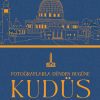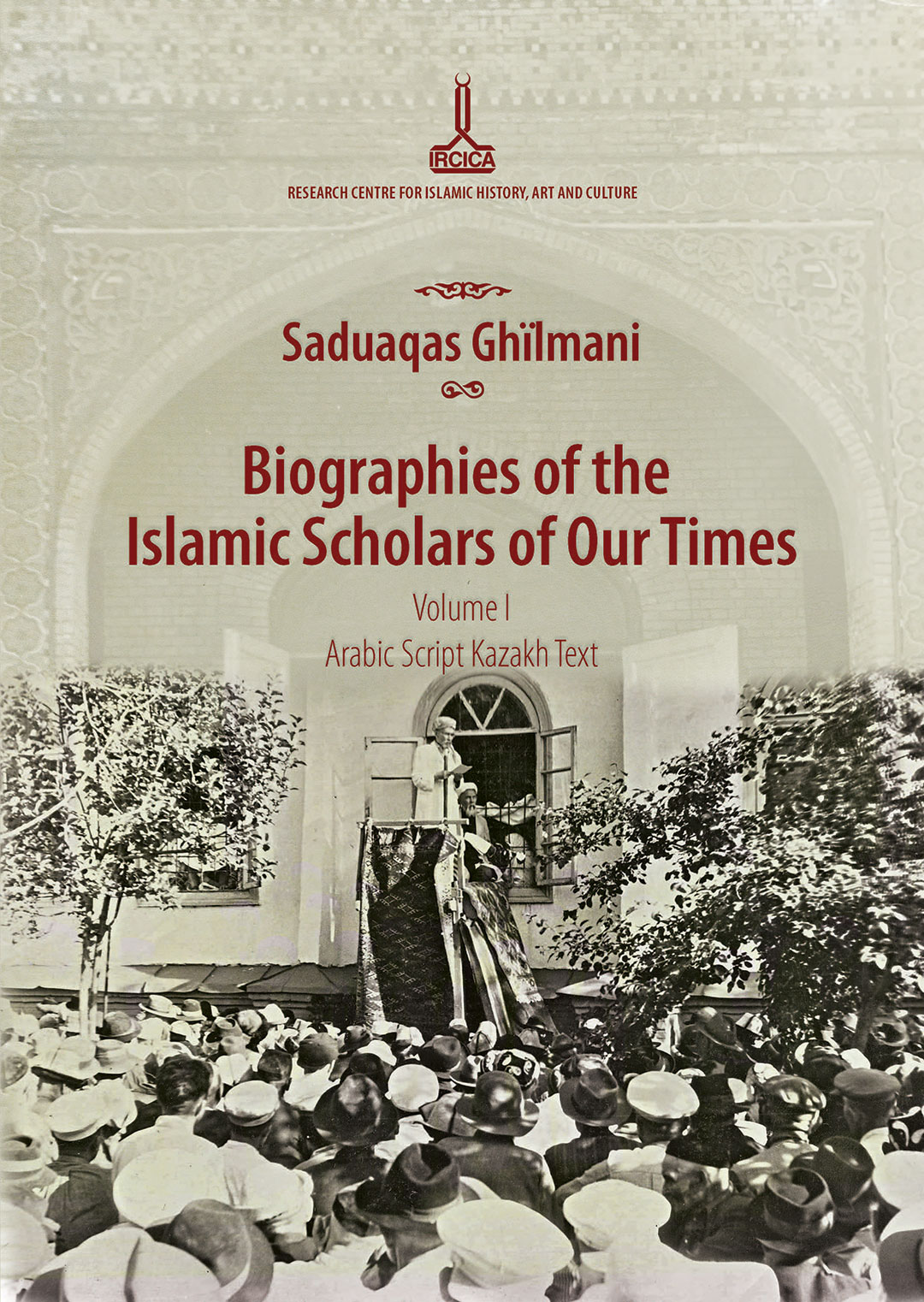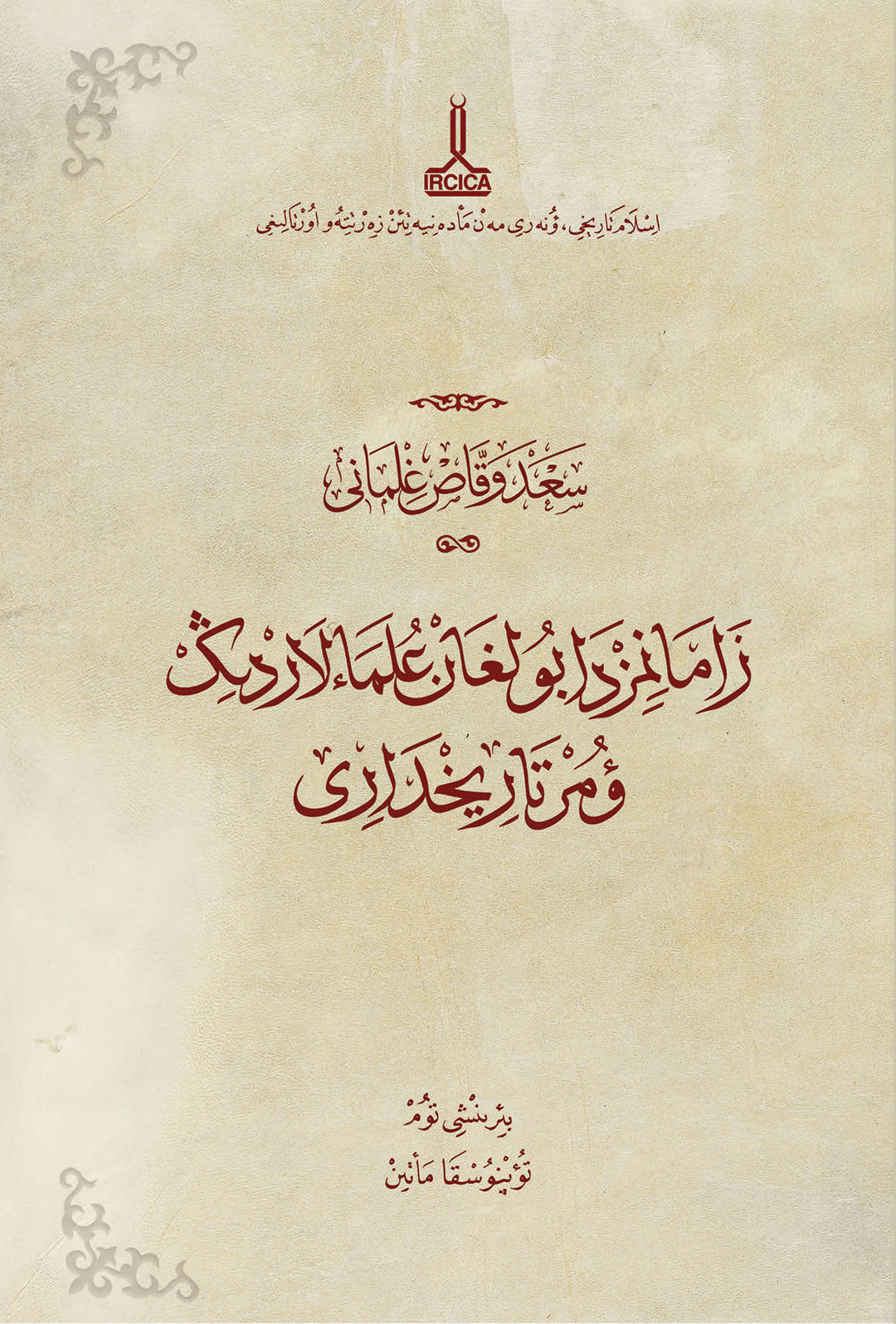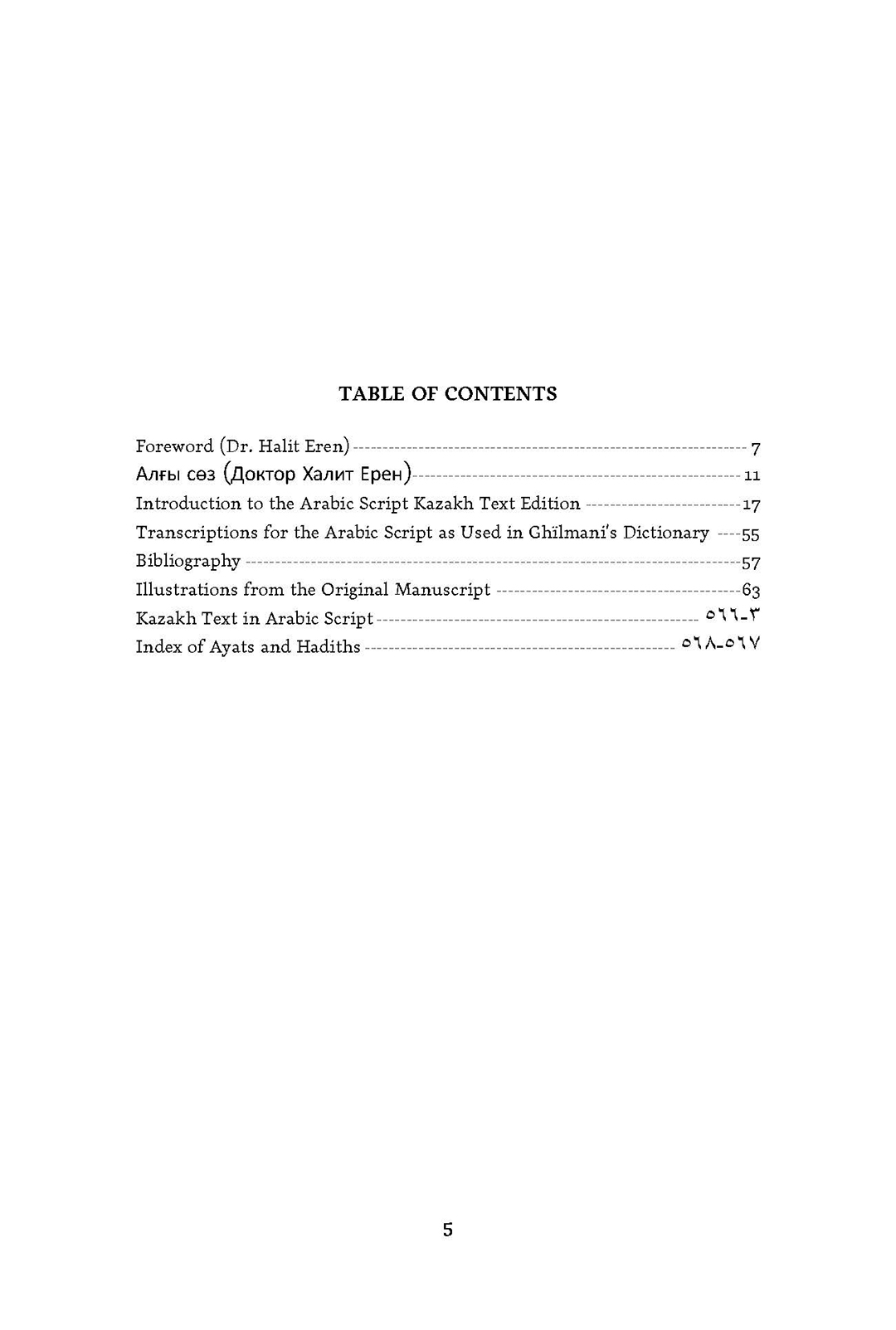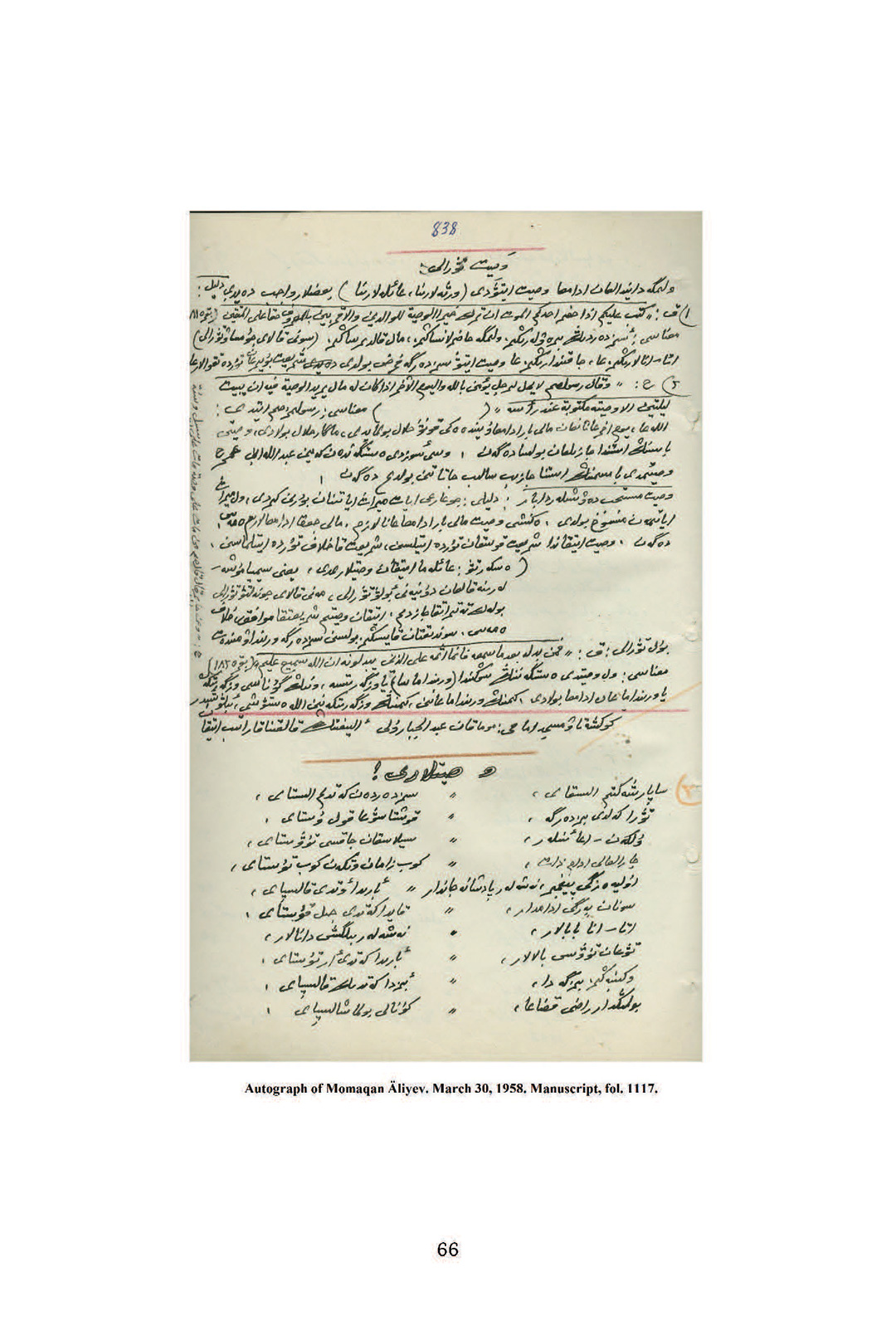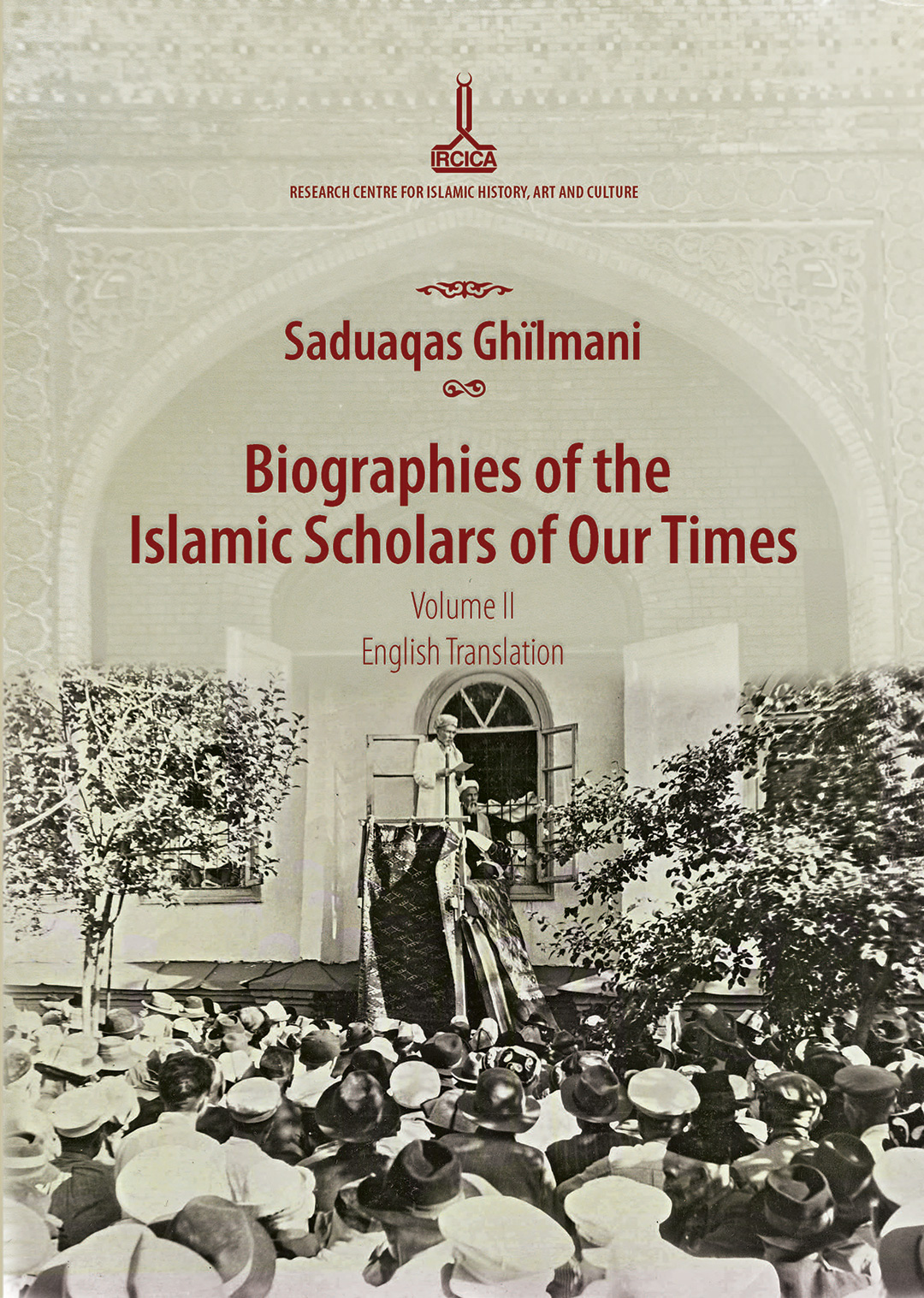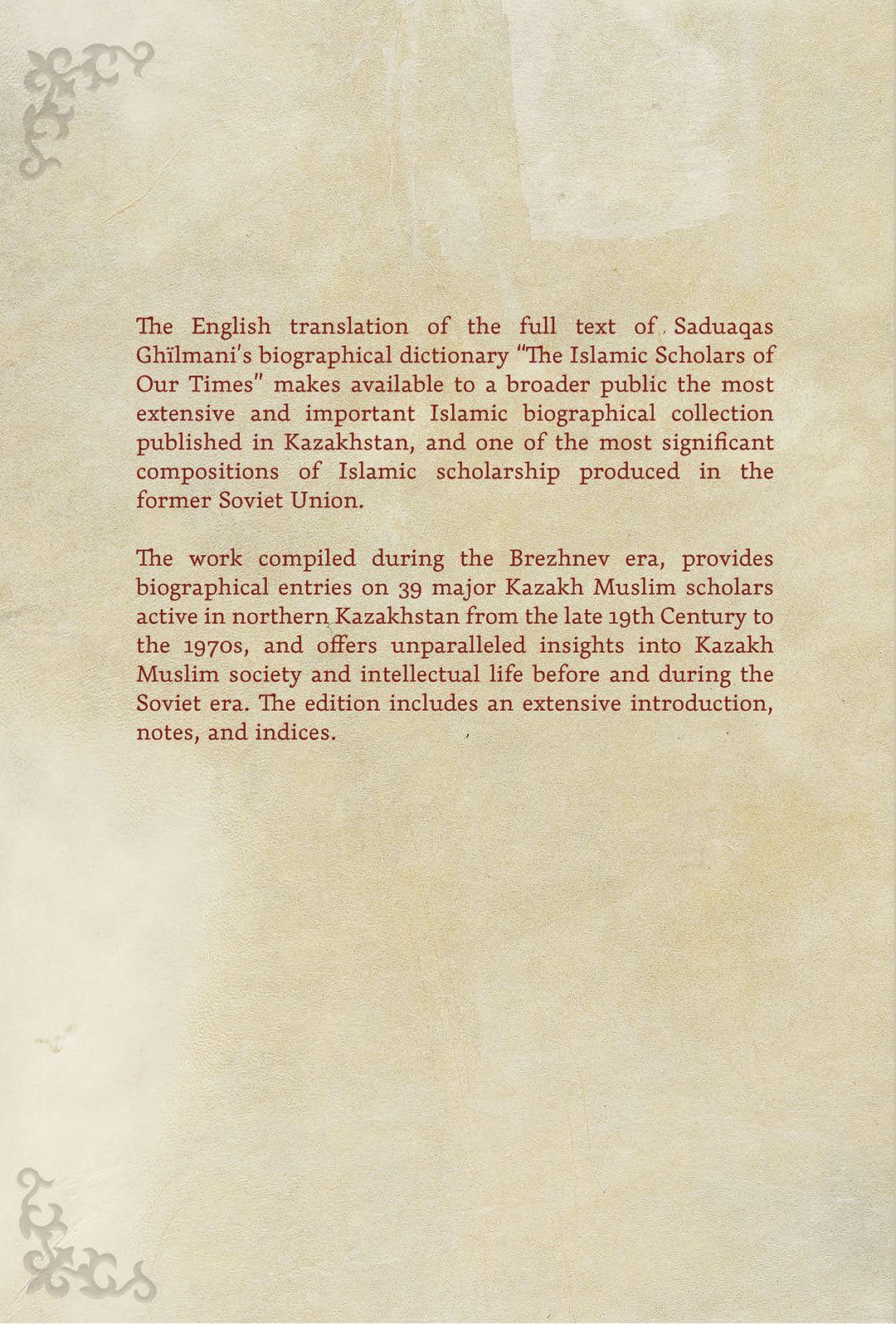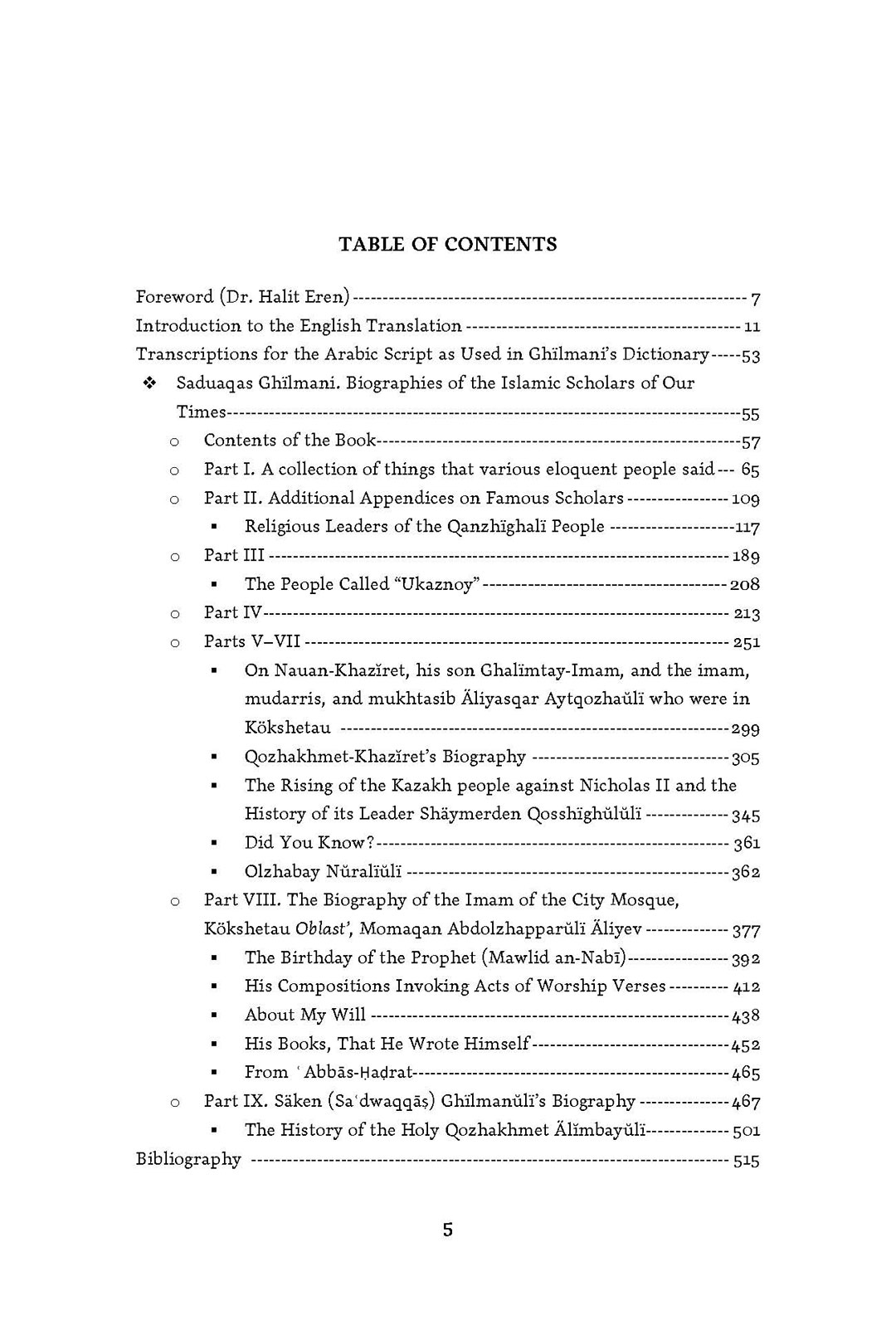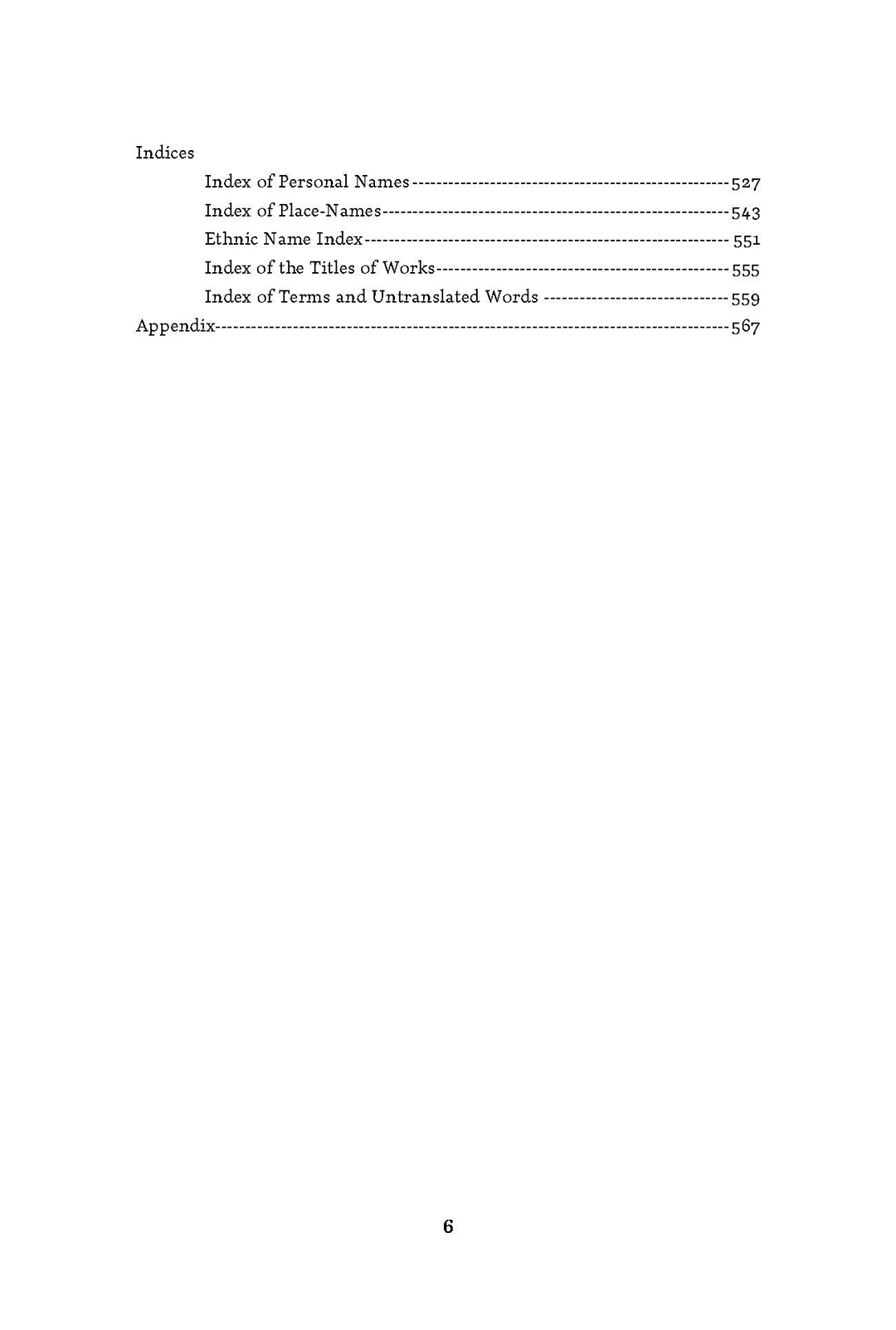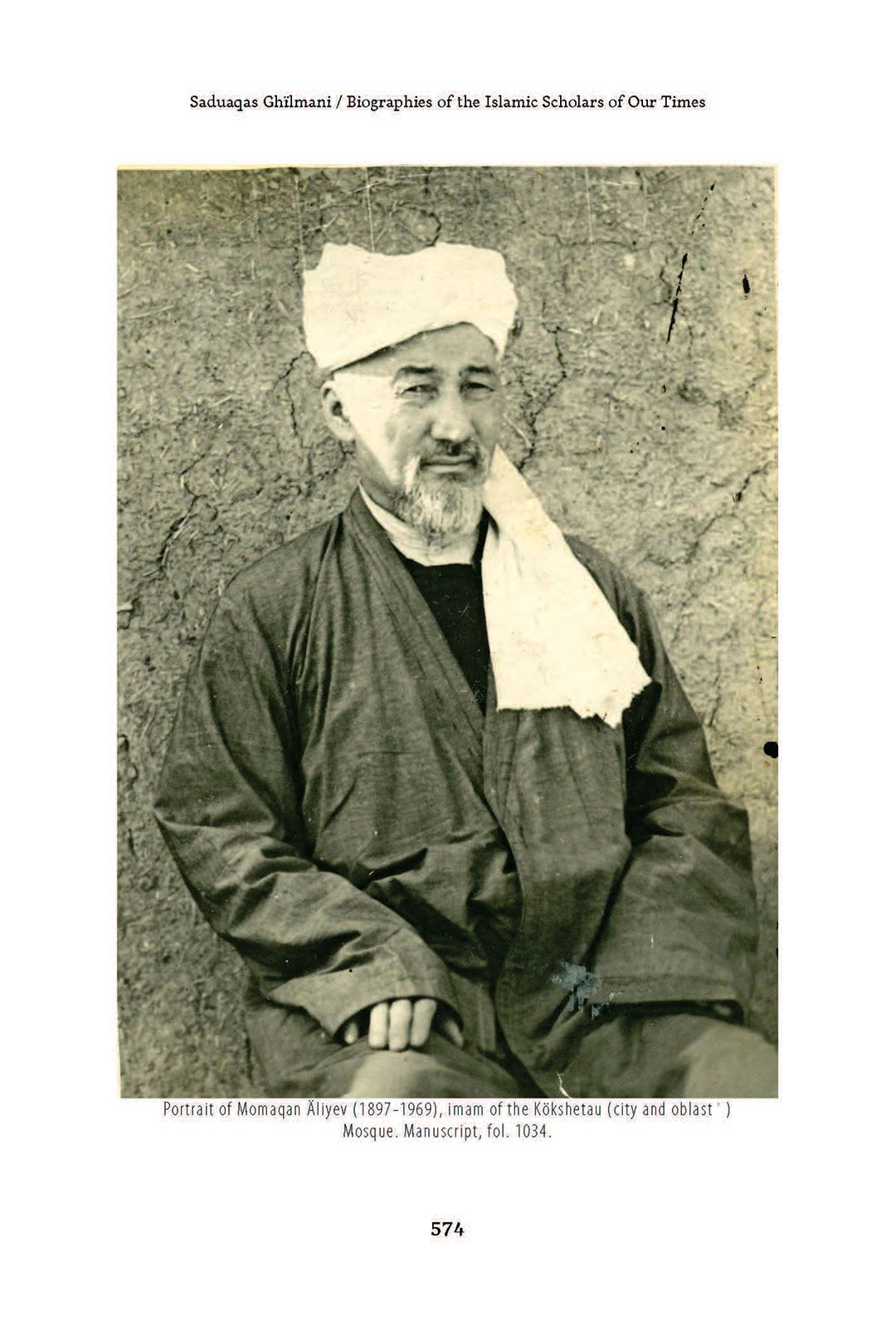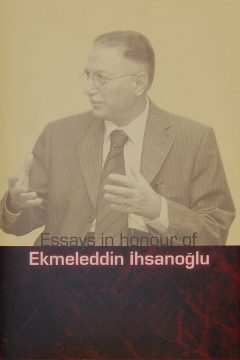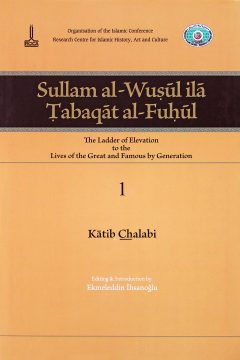his book contains a valuable scholarly work relating to Central Asian Muslim scholarship which is part of the cultural history of Kazakh society and Kazakh Islamic culture. The work titled Zamanïmïzda bolghan ghŭlamalardïng ömĭr tarikhtarï (Biographies of the Scholars of Our Times) authored by Saduaqas Ghïlmani (1890-1972), a prominent Kazakh scholar, is presented here in Arabic script Kazakh text and English translation of its original manuscript. This is a biographical encyclopedia of Kazakh ‘ulama’ and therefore a remarkable reference on Islamic culture in Central Asia.
Central Asia is one of the regions where Islam spread early, in the 7th-8th centuries AD, interacting productively with other local traditions and cultures. The multi-ethnic make-up and diversity of languages and cultures, the location of the region on the historical Silk Road, together with Islam’s encouragement of science and learning, all this contributed to the development and prosperity of the region over many centuries. The scientists of the Islamic world including those of the region, standing on the achievements of their predecessors, made their own contribution to the development of the humanities and the natural sciences. History has immortalized the names of Abu Nasr al-Farabi, Abu ‘Ali ibn Sina, Abu’r-Rayhan al-Biruni, Muhammad ibn Musa al-Khorezmi, Yusuf al-Balasaghuni, Nizam al-Mulk. World-renowned scholars of Islamic theology and jurisprudence, astronomy and mathematics, in the humanities and literature came from Central Asia. These achievements provided the countries of the region with an outstanding cultural heritage, which is of interest both academically and in terms of general interest.
The present book has been selected for publication taking into consideration its outstanding significance in many respects. Ghïlmani spent his life in the Imperial Russian and Soviet periods. From 1952 until 1972, Ghïlmani headed the Kazakhstani section of the Spiritual Administration of Muslims of Central Asia and Kazakhstan (SADUM) as the Qazi of Kazakhstan. His legacy, estimated to be over 60 titles, include poetry, as well as historical, linguistic and theological works. This book has a special place among them. It contains biographies of 39 religious figures and scholars from northern Kazakhstan who lived in the 19thand 20th centuries. The publication is based on the unique manuscript of the work, which is the author’s autograph. Its translation from Kazakh into English includes a scholarly commentary based on his rich archive, as well as his other works and notes of the memoir genre.

